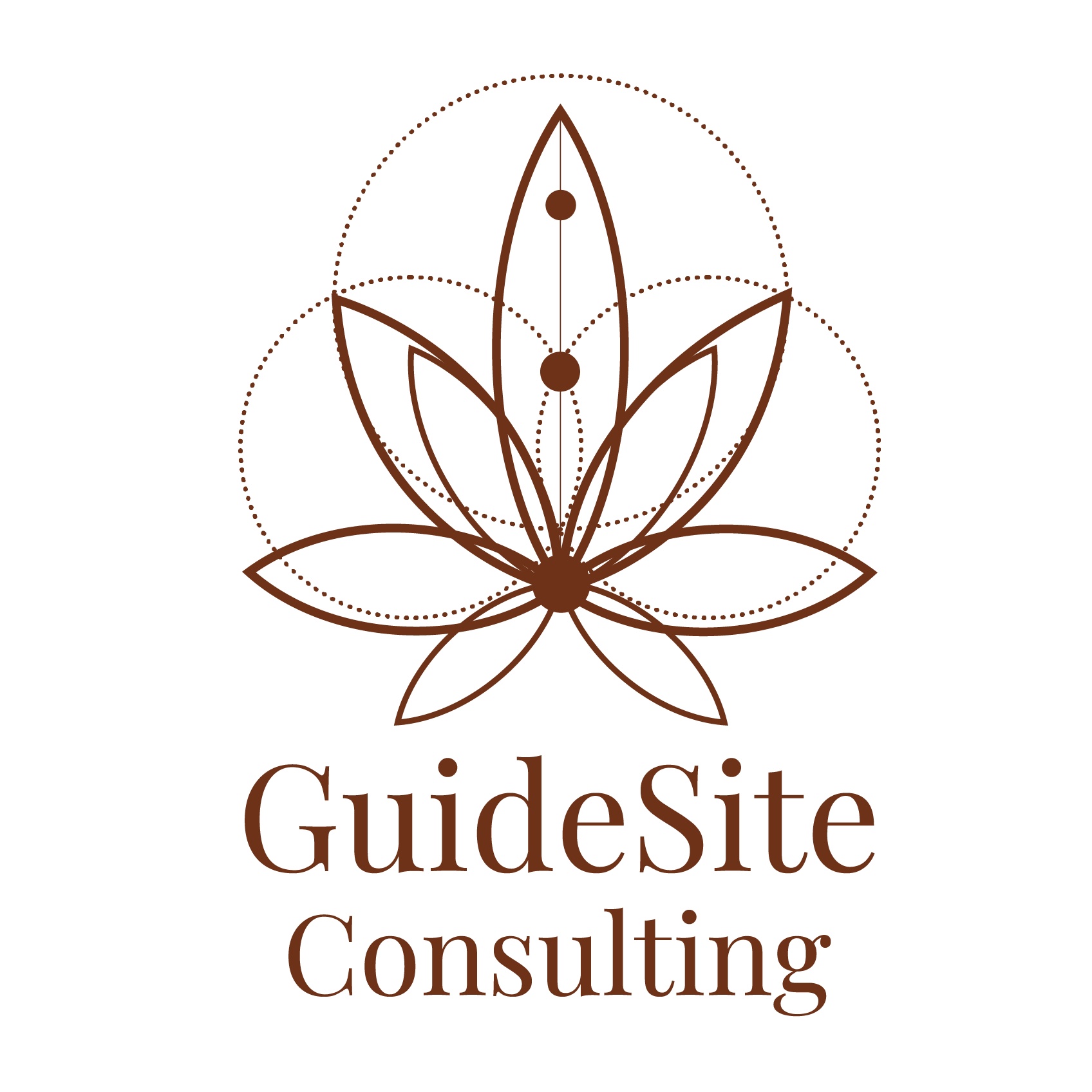Holistic Support for Psychedelic
Research Sites & Treatment Clinics
Psychedelic medicine has arrived. Many clinicians are now aware of its promise and are eager to offer it to their patients. They recognize that effectively doing so requires expert support in building capacity for themselves and the settings in which they work.
GuideSite empowers research sites and mental health clinics with the knowledge and skills needed to provide efficacious, ethical, and harm-reductive treatment with ketamine, MDMA, and classic psychedelics.

We provide foundational training options to prepare all site staff, including clinicians, for working with patients in non-ordinary states of consciousness.
Our holistic approach goes beyond video-based trainings by offering a wide array of support options for providers looking to offer exceptional care.
Our Offerings
Expert consultation on a range of topics, including site development, patient screening, clinical case discussions, & expert clinical and regulatory (FDA, IRB, DEA) research support services for Investigator-Initiated Trials (IITs)
A mix of live training sessions and video-based learning that develop important competencies for all site staff, including facilitators
Handbooks, checklists, patient-facing materials, educational materials for patients’ outside supports, and music playlists designed to support your specific needs
In-person or virtual assessment of your site’s physical spaces, as well as live simulations and role play-based trainings
Personalized, legal group experiences with non-ordinary states of consciousness that augment your team’s understanding of patient needs
Job postings, interviewing, and/or direct placement from our vetted network of highly skilled session facilitators
What we foster:
- A patient-centric approach to care
- Firm grounding in harm reduction & diversity, equity, and inclusion (DEI)
- Expertly trained site staff and session facilitators
- A treatment team that feels internally aligned and fully supported
- Proficiency in harm reduction practices & skillful navigation of the unique ethical challenges of psychedelic treatment
- Thoughtful approaches to treatment room setup, technology implementation, and controlled substance storage
- Consideration and integration of patients' outside support systems
- Networking and peer support opportunities within the GuideSite network
- A lasting partnership between you and us that serves as a reliable source of ongoing, as-needed support
Skillful care matters
The data are in. They show that the success and safety of psychedelic treatments depend on the contexts of therapeutic care built around them. Below, you can scroll through findings that highlight this.
Unsuitable settings lead participants to feel overwhelmed
A study that surveyed 1,867 psychedelic users found that a large proportion of overwhelming experiences associated with lower levels of well-being occurred in settings that the users described as only “somewhat suited,” “hardly suited,” or “not suited at all” for psychedelic use.
Participants have fewer adverse events when the context is right
A survey study of 2,751 psychedelic users found that 41% of the variability in how challenging their experiences were was explained by aspects of the context, such as their relationships with others present, space set-up, and their sense of comfort in the setting.
Proper patient preparation predicts better outcomes
A study of 1,278 psychedelic users, which included pre & post assessments of 46 psilocybin retreat participants, found that those who were properly prepared before dosing had greater improvements in well-being after dosing than those who were not well-prepared.
Skillful support and space setup reduces negative experiences
A survey study of 613 psychedelic users found that negative experiences and heightened risk of harm were more likely to occur when factors pertaining to the setting were lacking, such as proper preparation, skillful psychological support, and thoughtful space setup.
Creating the right treatment setting may minimize risks
An expert review of literature on the risk of triggering psychotic or manic episodes with psychedelic treatment concluded that an optimized setting will likely prevent these outcomes.
Harm reduction starts with the patient's mindset and comfort levels
A study that surveyed psychedelic users pre and post use found that the right pre-dosing mindset predicted a lower likelihood of challenging experiences. A similar trend was found with the impact of aspects of the setting, such as feeling comfortable in the dosing environment and comfortable with the people present.
Music choice can have a real impact on clinical outcomes
An interview study with 19 psilocybin patients found that their feelings about the music that was played for them predicted antidepressant outcomes.
Patients who feel a connection with staff may have better outcomes
A survey of 886 psychedelic participants found that experiences of “communitas,” or feelings of shared humanity with other people present, predicted greater benefit from the experience.
Positive experiences are built on proper preparation and music choices
A survey of 515 psychedelic users found that thoughtful music choices predicted less challenging experiences and that suitable preparatory practices predicted a higher likelihood of receiving benefit.
Better context leads to better outcomes
A survey of 603 psychedelic users found that the appropriateness of the setting predicted a lower degree and a lower variety of extended post-session difficulties for participants.
A strong therapeutic alliance means better clinical outcomes
In a clinical trial in which 30 participants received psilocybin for their depression, a stronger therapeutic alliance predicted greater reductions in depression, both directly and indirectly through facilitating beneficial experiences during dosing sessions.
More support for the importance of therapeutic alliance
Another clinical trial that gave 24 participants psilocybin for the treatment of their depression found that therapeutic alliance predicted greater reductions in symptoms.
Participants tell us that the quality of the setting and support matter a lot
A systematic review of 178 psychedelic clinical trial participant experiences found that they frequently reported that the treatment context and quality of clinical support they received was very impactful on their treatment experiences.
Participants say that proper preparation helps reduce negative experiences
When 50 psychedelic users who had challenging experiences were surveyed, they emphasized that being well-prepared and being in a thoughtfully designed setting helped them reduce negative outcomes.
All staff need therapeutic presence and an understanding of psychedelics
A study that conducted in-depth interviews with esketamine patients found that receiving proper support and therapeutic presence (not just from therapists, but from all staff) was key in helping them alleviate the anxiety stirred up by the drug effects. They also reported that they felt uncomfortable with providers who didn’t seem to understand their experience of psychedelic treatment, saying it was crucial that they demonstrated respect for the subjective experiences they were having.
Unsuitable settings lead participants to feel overwhelmed
A study that surveyed 1,867 psychedelic users found that a large proportion of overwhelming experiences associated with lower levels of well-being occurred in settings that the users described as only “somewhat suited,” “hardly suited,” or “not suited at all” for psychedelic use.
Participants have fewer adverse events when the context is right
A survey study of 2,751 psychedelic users found that 41% of the variability in how challenging their experiences were was explained by aspects of the context, such as their relationships with others present, space set-up, and their sense of comfort in the setting.
Contact Us Today
1.
Submit Your Information
Begin by filling out our contact form to schedule your initial consultation with GuideSite.
2.
Your Information Will Be Reviewed
Once your form is submitted, our team will review your information.
3.
Our Team Will Contact You
We will reach out to you on available dates and times to connect for a discovery consultation call.
GuideSite - WEBSITE SUBMISSION
We will get back to you as soon as possible.
Please try again later.



